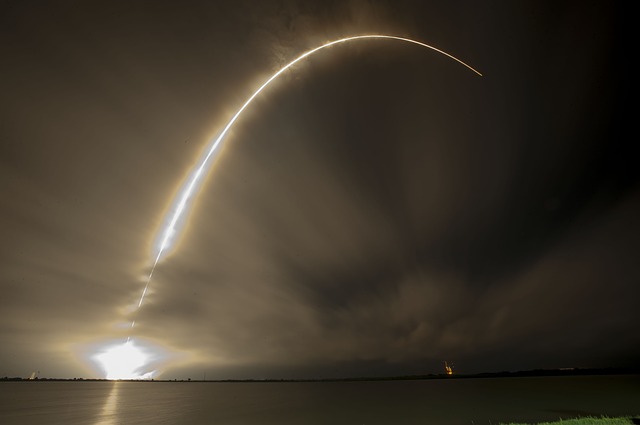By J.M. Phelps (American Thinker)
This weekend, a U.S.-led coalition, including Britain and France, launched an attack in Syria. In response to Bashar Assad’s callous disregard for humanity, President Donald Trump—under the authority of Article II of the Constitution—authorized the use of U.S military force against the atrocious Syrian regime. For civilized people of the world, the use of chemical weapons is utterly inexcusable.
The U.S. and our allies have made the just decision to send a clear signal, once again, to the Bashar Assad and the Syrian government in response to the chemical weapons attack committed on April 7. The use of chemical munitions against innocent civilians will not be tolerated. We, along with our allies, will continue to deter the use and proliferation of chemical weapons with decisive action and great force.
In an effort to strongly deter the Syrian regime from using chemical weapons, national security analyst, Lieutenant Colonel Robert (Bob) Maginnis, US Army (retired), says “we targeted them as a message. A year after the first incident in which we responded with cruise missiles, the second incident is more severe because obviously they didn’t understand the intent of the first message.”
The Russian-backed Syrian government continues to deny any use of chemical weapons. Vladimir Putin calls the attack an “act of aggression,” while Ayatollah Ali Khamenei calls the strike a “military crime.” Rightly, President Trump denounced Russia and Iran for their support of “rogue states, brutal tyrants, and murderous dictators.”
Based on intelligence gathering and in the best interests of national security, the U.S. and her allies have responded to the brutality of the Assad regime. Lt. Col. Maginnis asserts it is good we are working as a coalition. He also confirms Defense Secretary James Mattis “has made it clear there wasn’t any question in his mind that the Syrian regime had used chlorine gas.” Nonetheless, there is still some hesitancy about confirming whether or not there was sarin gas in the mixture.
He goes on to share, “There was acknowledgment that a Russian-made helicopter was circling about and evidently had dropped drums of chlorine gas and/or sarin gas in the vicinity of where the casualties took place.” Nearly a week later, “It would appear the delay in the execution of this attack was due to the need to confirm beyond a reasonable doubt the regime was directly involved,” suggests Maginnis. “Having said that, we obviously planned well the targets near Damascus that were doing research and development and storing chemicals.”
He believes the Russians and Iranians will “squawk and complain, but the reality is that we believe this was an unacceptable attack by the Syrian regime.” Therefore, our response cannot be recognized as illegitimate or unjust when the use of chemical munitions is used against innocent civilians.
“Having said that,” Maginnis notes, “you have to make the argument as to what is our national interest involved here. That’s where it becomes a bit dicey.” He would argue the British have seen the use of nerve agent in their own country in the past, which pointed clearly at the Russians. “Given that and given the fact that chemical weapons are known to be in the possession of the Iranians, the North Koreans, and obviously the Syrians,” he believes this warrants the U.S.-involvement for the stability of the world.
“There were concerns that if the proliferation of these weapons is not dealt with decisively as they were last evening and a year ago, frankly, they could easily proliferate,” says Maginnis. “Rogues like Bashar Assad, Kim Jong Un, and others are more than willing to sell these types of deadly substances to anyone that can afford them.”
In one example, over the last two years, North Korea has been supplying chemical weapons to the Syrian government. The civilized world cannot ignore the sale and use of such weapons. We need not be fearful as to how the Russians and Iranians will respond in this case. Maginnis believes they’ll think twice.
Dr. Herb London of the London Center for Policy Research states, “The Russians do not want a direct confrontation with the United States. Putin wants to play his hand very carefully.” In addition, Maginnis says, “Jerusalem is watching very closely, and Assad is watching very closely to ensure these people are constrained and do not get out of hand.”
As we move forward from the aftermath of this strike, can the United States and her allies prevent further humanitarian catastrophe from rogue regimes like that of Bashar Assad? Barbaric actions, such as his need, to be controlled as we cannot allow them to continue to proliferate in a civilized world.
A few questions remain. One, have we sent a clear enough message to Assad and his brutal followers this time around? Of course, we can expect them to deny the existence of chemical munitions and the severity of the missile attack. Second, will the American people back the decision of our President of the United States in matters like this one? Indubitably, many American people will be persuaded by the wealth of misinformation and bias sprouting from the talking heads of America and the Middle East.
J.M. Phelps is a Christian activist and journalist based in the Southeastern U.S. He is also editor and publisher of the website Lantern of Liberty.
Originally published by American Thinker on Sunday, April 15, 2018.
This column is printed with permission. Opinions expressed in columns published by Lantern of Liberty are the sole responsibility of the article’s author(s), or of the person(s) or organization(s) quoted therein, and do not necessarily represent those of the staff or management of, or advertisers who support Lantern of Liberty.

